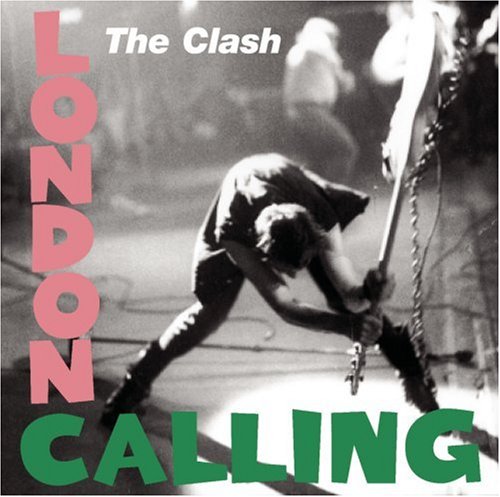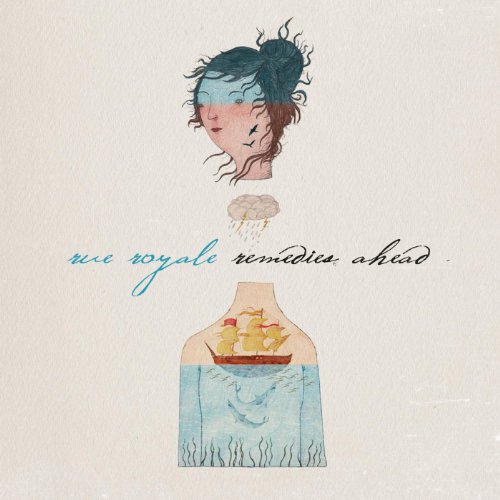My annual round up of music.
Read MoreMusic/ 2022
The Year of our Lord 2022 in music.
Read MoreMusic/ 2019
Not to trumpet my preferences as to who released the “best records of 2018” but to remember what my life was like year by year, and to do that by tracing its soundtrack.
Read MoreMusic/ 2018
Not to trumpet my preferences as to who released the “best records of 2018” but to remember what my life was like year by year, and to do that by tracing its soundtrack.
Read MoreMusic/ 2015
Favorite records of 2015
Read MoreJurado Juvenalia
Here's a song from Damien Jurado that I'm guessing even longtime fans haven't heard. It's from a sampler for a nascent record label that, in the pre-Kickstarter era, never got funded. I'm not sure who was behind it, but from the line-up, I'm guessing this was an early side-project of Aaron Sprinkle's. It's one of my favorite collections, featuring bands that, I think sadly, never put out a full-length record, (esp. Moonboy and Paul Mumaw) but whose work on this suggests they should have. It features an acoustic track from Soulfood 76--another early favorite of mine--and a remix from Poor Old Lu. Get "Persuading You Near" (1996) from Working Man Records, if you can find it in a bin. Enjoy.
And because my friends in a Facebook group asked, here is another song from the record from an early Jurado band called ”Moonboy.” It’s my favorite track on the sampler and I wish they had made a full-length album.
The Media Question
Here's the problem: I fond of and serious about listening to music, but can't find a medium to which I should give my devotion.
Read MoreHow to Hear Me
Inspired by a blog post I recently read that reminded me I should be listening to jazz music (an activity I practice, but of whose import I need sometimes to be reminded), and sitting at the Civic Center Library anyway, I wandered over to the CD section (nowhere near as well-stocked or organized as the Highlands Ranch Library in CO) and began to peruse, looking for Lester Young, Gerry Mulligan, Duke Ellington, Coleman Hawkins: my usuals. Finding none, (although I did get the excellent Keith Jarrett/Charlie Haden record "Jasmine,") I indulged in my usual, and usually-reliable assessor-ship of books by their covers. And was led therefrom to a record by Gil Scott-Heron called "I'm New Here" (XL Recordings, 2010). I liked its font, mainly, and the photographic composition, and how the colors mimic those of the epic Clash record "London Calling."
"I'm New Here" is not much of a production. It experiments with samples, spoken word, and light instrumentation, but is not really experimental, or moving or smart. Nothing that happens on this record isn't better done by Sam Prekop on the Sea and Cake records, or Dan Deacon, or Bill Callahan, all of whom I recommend broadly.
The reason I'm bothering to say any of this, though, is because I admire Scott-Heron's artist statement, printed in the liner notes. Here is what he writes:
There is a proper procedure for taking advantage of any investment. Music, for example. Buying a CD is an investment. LISTEN TO IT FOR THE FIRST TIME UNDER OPTIMUM CONDITIONS. Not in your car or on a portable player through a headset. Take it home. Get rid of all distractions, (even her or him). Turn off your cell phone. Turn off everything that rings or beeps or rattle or whistles. Make yourself comfortable. Play your CD. Listen all the way through. Think about what you got. Think about who would appreciate this investment. Decide if there is someone else to share this with. Turn it on again. Enjoy yourself.
I appreciate everything the artist has to say here. That his work deserves some respect. That respect involves giving it space (as well as not stealing it). I like how concerned he is with my comfort. How he insists I listen all the way through. When was the last time I did that? He suggests that appreciating music is a communal endeavor (it used to be for me, and isn't any longer) without sounding like he's marketing.
Mind you, I didn't do any of these things. I listened to it in my car, amid traffic, actually, but in my current domestic arrangement, that's the most peaceful time I have. I also fail to see what is lost by using headphones. Most people don't possess hi-fi equipment sophisticated enough to outplay their iDevices anyway. And wouldn't using headphones add to the distraction-free listening experience he wants us to cultivate at first anyway?
Still, though he created all that space and attention only to fill it with mediocre work, Gil is my new hero (having just supplanted John Roderick, who has done nothing to fall from my graces, and who is consistently smart about art-making) for demanding it in the first place.
Year in Music 2013
This was a pretty great year for music, as all serious critics seem to agree. Last year, I couldn't find anything to listen to apart from the heartbreaking Perfume Genius record and "Bloom" by Beach House, which I practically played out.
By contrast, this year I had a full list of favorites by halfway through. Some make appearances on many critics' year-end lists; others aren't mentioned anywhere, from what I can see. When I look back at 2013, from any vantage of later years, I'll remember it as the time I was listening to and loving these records:
At least as much as any of these records, I loved a little release by an Icelandic band called Hynmalaya. They have no distribution deal in America, and haven't even bothered to set-up an Amazon page with a few of their CD's, but they're giving away the whole record (MP3) free on their website. It's quiet and beautiful music, with full string and horn sections that seem to know their place, as so few such sections do. And lyrically, it reminds me of the best book I read this year, which you should also seek out.
Runners-up
Junip Self-Titled
The Love Language Ruby Red
Veronica Falls Waiting for Something to Happen
Foxygen We Are the 21st Century Ambassadors of Peace & Magic
The Best Music Criticism on the Web
I've just discovered this website and I find it astonishing. It's ostensible aim is to have musicians reviewing the work of their fellow musicians, but what it is notable for in fact is the odd pairings--there are rarely, if ever, two artists even from the same genre-- and the honesty of the writing. A little heavy on snark maybe, but what do you expect from the kinds of musicians who also write essays? Here's a selection of a piece by a fellow named Rick Moody (whom I don't know, but who has nothing, I was disappointed to learn, to do with The Moody Blues, which would have been awesome). He's writing a note to Trent Reznor of Nine Inch Nails (or maybe Tool, who are, I think, arms of the same marketing department/ band). Anyway, it's great.
My suggestion is: why not tell the truth? Why not tell the truth about a reasonably rewarding and gratifying middle age with a wife who presumably loves you, and in which you are not fucking yourself up so completely? Why not sing about the excellently named Lazarus and Balthazar? Why are these things so fearsome that one might rather write some more miserably dissatisfied songs about disaffiliation and anomie than face the idea that one is, well, successful and accomplished, sort of a genius, and that the world is very responsive to that genius? Why not make some songs in which you start to see the world as it is, as a rather precious place with a lot of people trying to make some good from it, despite the horror of the times, doing their best to do good work and love the people around them, which is what your highly successful career ratifies — this very notion of the world. Or why not a song about a nice night at home with the lovely wife and the two sons, in which you pull some vegetables out of the garden, watch the sunset, all while, e.g., the President mulls what to do about the nerve agents in a desert land far away? That is the truth, after all, the truth of power and of our brief term here. And that truth is more complex and compelling than the dissatisfactions of the self.
Read the rest of the essay here.






